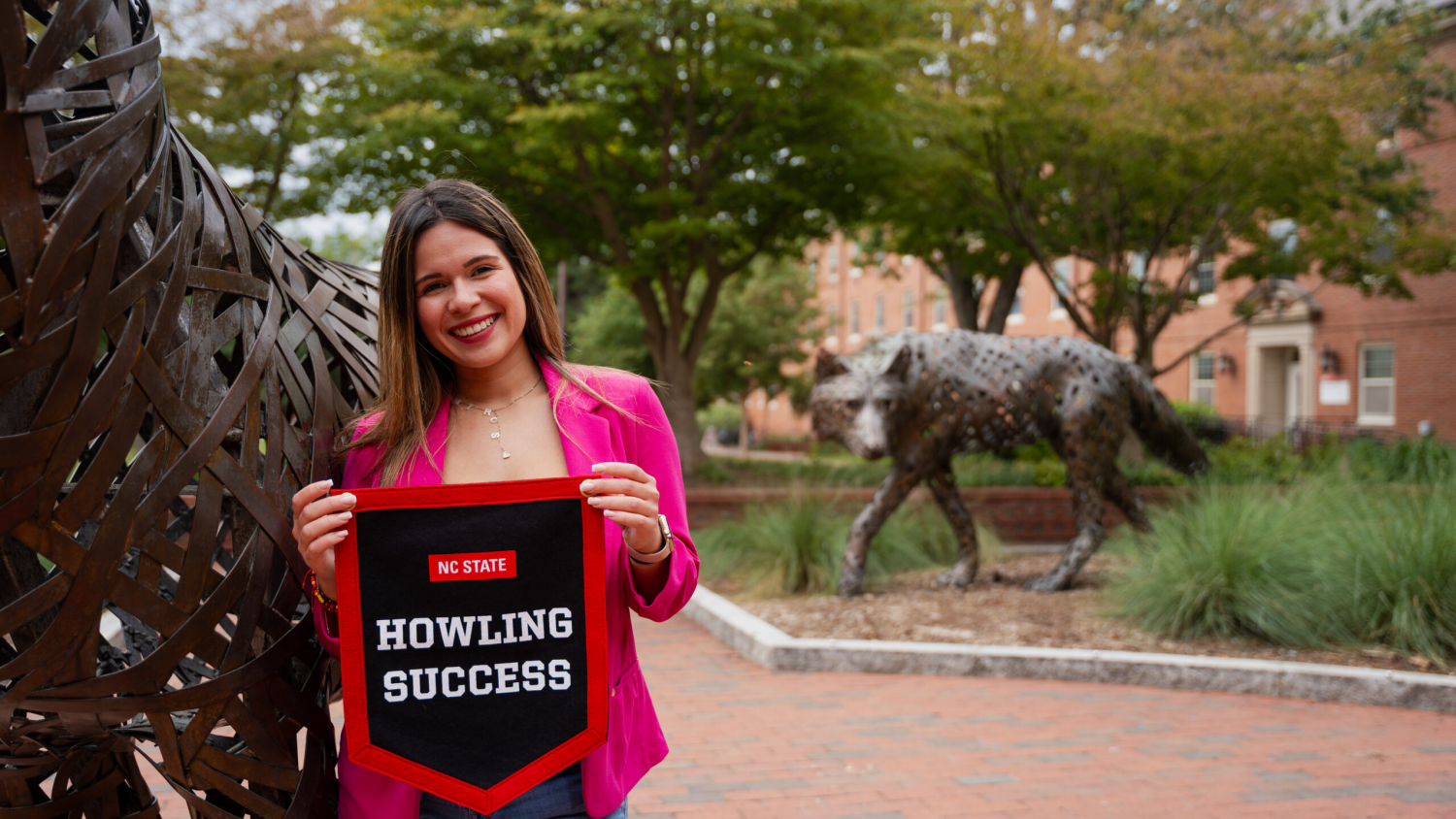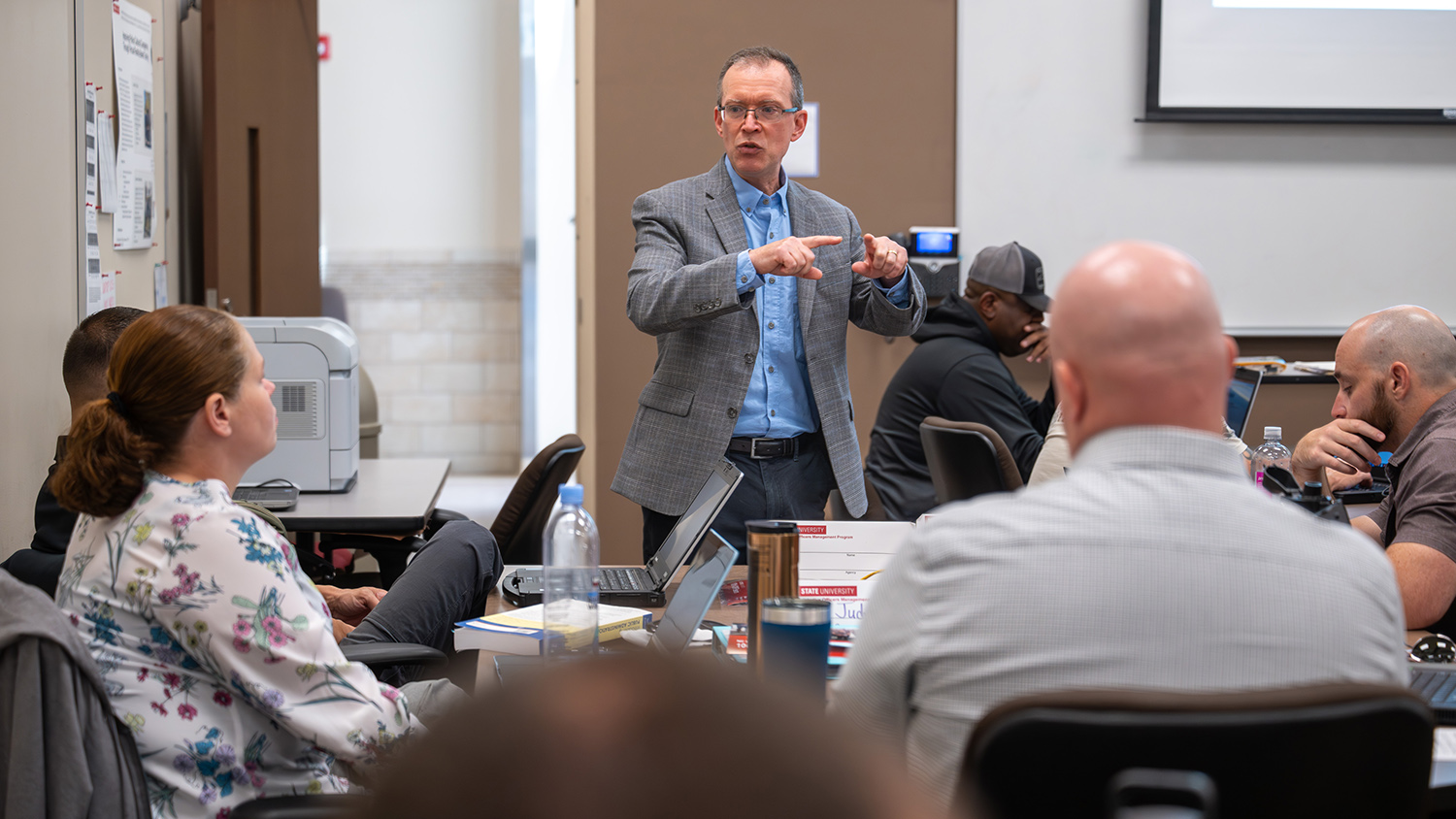NC State Researchers Land NSF Grant to Develop AI Tools for Workforce Empowerment

Supported by a $980,000 grant from the National Science Foundation (NSF), NC State University researchers will develop new artificial intelligence (AI) tools to help job seekers and employers manage a rapidly changing labor market.
The project, led by NC State English professor Huiling Ding, is part of the NSF’s Convergence Accelerator Pilot program that supports multidisciplinary efforts to address issues of national importance.
With scholars from computer science, industrial engineering, technical communication, philosophy, healthcare and psychology, the NC State project team will develop the first public-facing AI platform that helps workers and employers develop skills and manage career changes in a labor market increasingly characterized by automation, technological unemployment and AI-assisted recruiting.
Focusing on the manufacturing industry, the project will address key challenges faced by workers and employers by providing support in areas such as credential gap analysis, retraining planning, and support for job search and soft skill development in AI recruiting.
“In the 1950s, we as a nation tried to address two challenging questions: ‘Why can’t Johnny read? Why can’t Johnny write?’” says Ding, director of NC State’s M.S. in Technical Communication program. “Today, we work to ensure that Johnny can find a job and stay marketable in a world disrupted by AI technologies.
“Our project aims to build a ‘Google of reemployment preparation and retraining’ for future workers and a ‘service supermarket Uber’ for retraining programs.”
Currently, NC State researchers are working to address different populations’ needs for public-facing reemployment tools such as credential gap and interview probability analytics, diagnostic and support tools for reskilling, and educational materials for AI-augmented pre-hire screening and soft skill development.
The project will also generate big data results about new and existing manufacturing occupations in terms of core competencies and skills, which the team will share with occupational resource providers such as O*Net and CareerOneStop.
“By helping tackle the societal challenges of workforce retraining, our team hopes to positively impact a wide range of stakeholders, including educational and industrial partners,” Ding says. “This opportunity will benefit community and four-year colleges but more importantly school districts and manufacturers of all sizes in North Carolina and beyond.”
The research team consists of the following NC State faculty members:
- Huiling Ding, principal investigator, associate professor of English and director of NC State’s M.S. in Technical Communication program.
- Min Chi, co-PI and associate professor of computer science.
- Xiaolei Fang, co-PI and assistant professor of industrial and systems engineering.
- Timothy Menzies, co-PI and professor of computer science.
- Xipeng Shen, co-PI and associate professor of computer science.
- Veljko Dubljevic, senior personnel and assistant professor of philosophy and science, technology and society.
- Yang Cheng, senior personnel and assistant professor of communication studies.
About NSF Convergence Accelerator (C-Accel)
The NSF’s Convergence Accelerator Pilot is issuing its first set of awards in 2019. A total of 43 new awards, totaling $39 million, will support projects across the country that will find new ways to apply big data to science and engineering and create technologies that can enhance the lives of American workers.
About NC State’s M.S. in Technical Communication Program
NC State’s Department of English established the first Master of Science degree in Technical Communication (MSTC) in the southeastern United States. Since its inception in 1988, MSTC has earned a national reputation, with highly recognized faculty from a variety of fields. MSTC prepares professional communicators for careers that bridge the relationships between people and technical systems: web design and development, software and hardware documentation, industrial training and development, medical communication, environmental and agricultural communication, technology transfer, organizational information management, and human-computer interface design.
For more informaton, please contact MSTC Director Huiling Ding at 919-515-4120 or hding@ncsu.edu.
- Categories:


